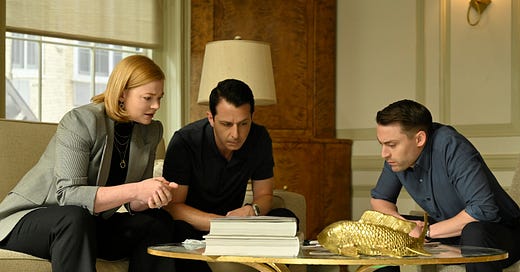Works righteousness, the American dream, & the twisty twistings of our twisted hearts
On the discourse around HBO's *Succession* & how easy it is to go for disdain over empathy
Gentle reader,
It’s May! I pray that some fresh springtime hope is winging its way in your direction. Today, I invite you to think with me about a great television show and how hard it is for us to see ourselves clearly.
HBO’s drama Succession brings us into the lives of the filthy rich Roy family. The series focuses on four adult siblings as they vie to…
Keep reading with a 7-day free trial
Subscribe to Church Blogmatics by Beth Felker Jones to keep reading this post and get 7 days of free access to the full post archives.





